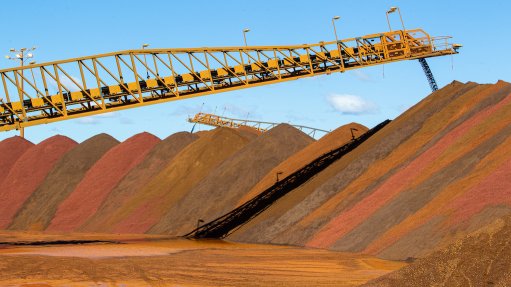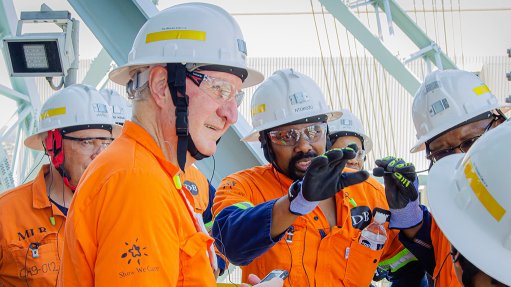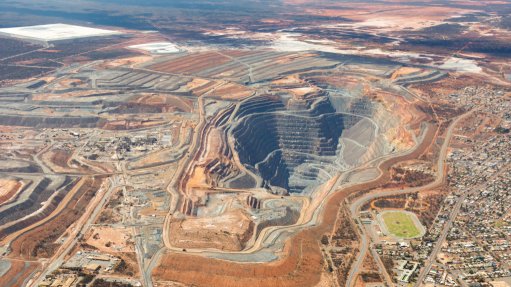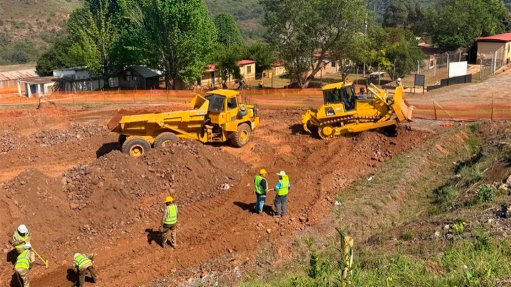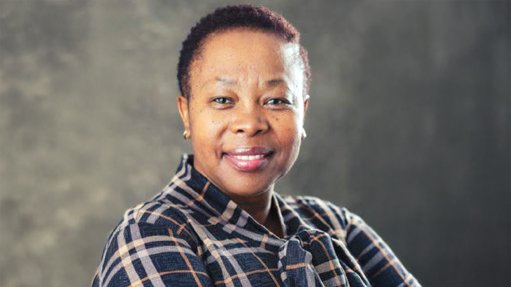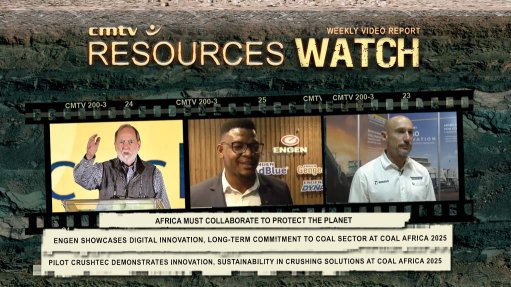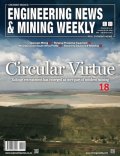Inaugural symposium explores opportunities, challenges for women in mining
South Africa’s mining industry has made some strides in improving gender parity; however, more needs to be done to bolster this, including tackling issues such as gender-based violence, speakers highlighted during the first day of the inaugural Women in Mining SA (WiMSA) Symposium, being held this week in Randburg.
During the first panel discussion, speakers shared strategies for women’s career growth in mining.
Mining engineer Mogaleadi Seabela emphasised that women must understand the significant difference between a job and building a career. She encouraged them to be intentional about pursuing the latter.
Industry stalwart Vanessa Naicker, whose lengthy career in the industry includes positions at Anglo American, stressed that women must acknowledge that they have the foundational skills that are on par with their peers, having gone through the requisite education and earning a job.
AB Global Mining senior consultant geologist Mpai Mosiuoa said women should leverage their emotional intelligence skills in the workplace. She also underlined the importance of them having a clear idea of their goals.
This was echoed by Naicker, who said this clarity would help guide women on their career trajectories, given that the industry was vast, and they may face hurdles and be exposed to different paths as this develops.
She emphasised that women must be resilient, adaptable and persistent, as this would position them to be indispensable in the industry.
Seabela said women should also strive to achieve work-life balance. Mosiuoa said this had to be done deliberately, given that women had a lot to balance between their personal and work lives, and part of this entailed putting in place boundaries and understanding that they cannot do everything.
The panel was bullish about the future for women in the industry, despite challenges.
Seabela highlighted that technology was and would unlock considerable opportunities. For example, women can work in male-dominated fields by using technology to operate equipment remotely and safely. Technology also allows hybrid and remote working for management which engenders greater flexibility to work from anywhere.
She called for women to embrace and drive the use of technology.
Naicker cautioned, however, that technology must be used responsibly, and must not hinder people’s work-life balance.
Mosiuoa said that, after technology, the most important thing for women to position themselves for the future would be honing their skills and building new ones.
Naicker called for established women in the industry to build up, train and support others, who could learn from their experience and expertise, which would also drive further transformation.
This was supported by Mosiuoa, who said women often found themselves competing against each other.
Delivering the keynote address, South African Council for Natural Scientific Professions CEO Dr Nompumelelo Obokoh reiterated this call for support, noting that solidarity was key.
She underlined the importance of mentorships, not just in guiding people in the industry, but also, in forging a path of change moving forward.
She said that while statistics showed some improvement in gender parity in the country’s mining industry, which had gone from no women working underground to many now being employed, more still needed to be done to bolster these figures.
She stressed that the participation of women in the industry goes much further than just numbers, including benefits of bringing in diverse viewpoints.
During the second panel discussion, speakers pointed out that while the increasing participation of women in the industry was commendable, it had also caused gender-based violence (GBV) to increase, and this was an area which required proper interventions.
One of the ways this is being addressed is through the Thuthuzela Care Centres, where people can report rape and other forms of GBV.
However, panellists noted that this was a reactive solution, and therefore limited in its scope, as it did not address the root cause of issues.
They did, however, highlight it as an important piece of the solution, which was being supported by many mining companies, and with more also being built.
Panelists said that one of the biggest challenges in the industry, and in society as a whole, was underreporting of GBV. They stressed that employees must have a proper process in place for addressing GBV, and for the first respondent to instances to be sympathetic to the topic to ensure that people were not deterred from reporting.
Article Enquiry
Email Article
Save Article
To advertise email advertising@creamermedia.co.za or click here
Press Office
Announcements
What's On
Subscribe to improve your user experience...
Option 1 (equivalent of R125 a month):
Receive a weekly copy of Creamer Media's Engineering News & Mining Weekly magazine
(print copy for those in South Africa and e-magazine for those outside of South Africa)
Receive daily email newsletters
Access to full search results
Access archive of magazine back copies
Access to Projects in Progress
Access to ONE Research Report of your choice in PDF format
Option 2 (equivalent of R375 a month):
All benefits from Option 1
PLUS
Access to Creamer Media's Research Channel Africa for ALL Research Reports, in PDF format, on various industrial and mining sectors
including Electricity; Water; Energy Transition; Hydrogen; Roads, Rail and Ports; Coal; Gold; Platinum; Battery Metals; etc.
Already a subscriber?
Forgotten your password?
Receive weekly copy of Creamer Media's Engineering News & Mining Weekly magazine (print copy for those in South Africa and e-magazine for those outside of South Africa)
➕
Recieve daily email newsletters
➕
Access to full search results
➕
Access archive of magazine back copies
➕
Access to Projects in Progress
➕
Access to ONE Research Report of your choice in PDF format
RESEARCH CHANNEL AFRICA
R4500 (equivalent of R375 a month)
SUBSCRIBEAll benefits from Option 1
➕
Access to Creamer Media's Research Channel Africa for ALL Research Reports on various industrial and mining sectors, in PDF format, including on:
Electricity
➕
Water
➕
Energy Transition
➕
Hydrogen
➕
Roads, Rail and Ports
➕
Coal
➕
Gold
➕
Platinum
➕
Battery Metals
➕
etc.
Receive all benefits from Option 1 or Option 2 delivered to numerous people at your company
➕
Multiple User names and Passwords for simultaneous log-ins
➕
Intranet integration access to all in your organisation






